Tell us a little about yourself, your family, including how you got started as a journalist?
I’m a “language man”, I’m multinational man. I’m multigenerational, I’m G, and those with unmatured brain call me Gypsi, but originally my interpretation of that “G” – means Galjus, it is my proud family name which is very rare among the Rromani communities.
Because of the fascist, who knew that Rroma have often such family name my grandfather, who was attacked by Italian fascist, gendarme in our Rromani street, he decides to change the family name from Kalo to Galjus.
“Kalo” (in Rromani and in Indian languages “kala” means “black”. “Kalo” families the most widespread families, (somewhere is written like Callo, Kahlo).
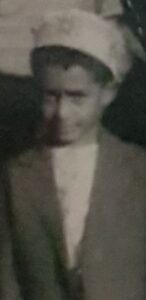
Orhan Galjus
What is the difference between journalism when you started and today?
It is big difference. The global development of the World, the notion of democracy and the change which occurred in 1970s, 1980s (in this period I started to be journalist) then1990s, 2010s the new media technologies, political economy of the Europe and the World, the internet, new age social media all that contributed to metamorphoses in and within journalism.
Today much busier and much faster! But, in 1980s, I had enough TIME to drink coffee with Belgrade opinion maker on 23rd floor of Beogradjanke, famous, late, Dusan Radovic. As well as it was a pleasure to discuss with my colleagues about the TRUTH and BEATY in journalism while being in Prishtine or Novi Sad.
The journalism has changed; the “mind set” of the media is influenced by cameleonistic feature by the ownership issues where the journalism has nor “j” from… or the unfair games of the rich “donors”.
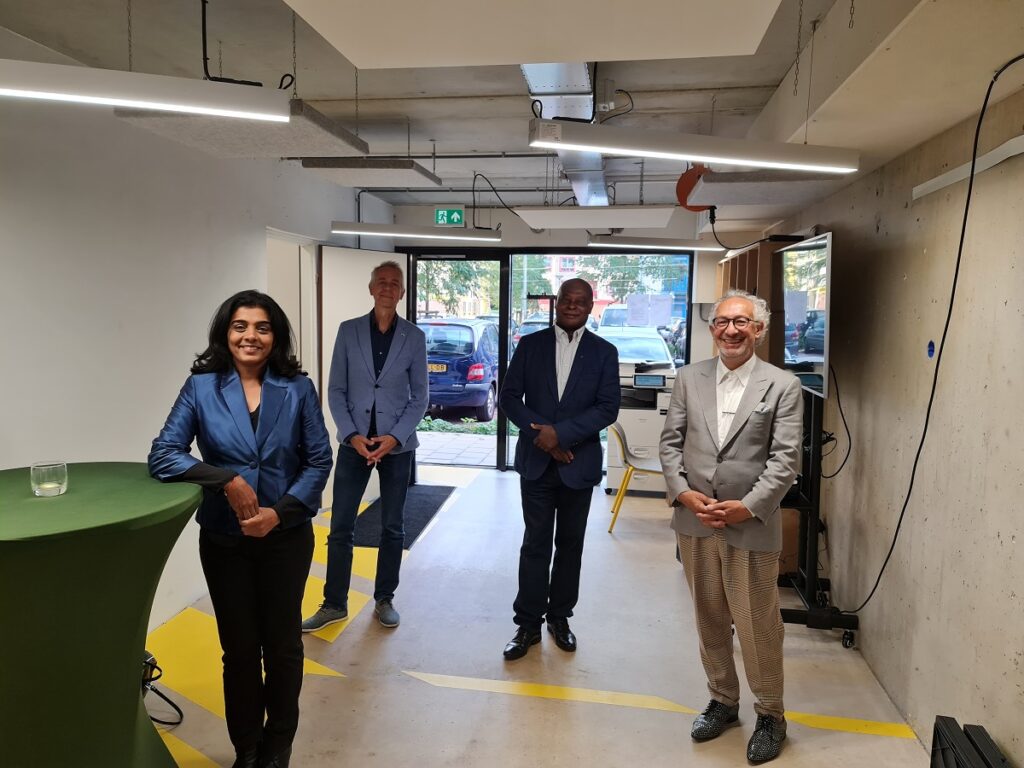
Orhan Galjus with Chair of Amsterdam South East District
You lived in many countries. What is your homeland?
Right, my professional life made such nice, beautiful line, life is as the art itself. My homeland is where is my life. But, answering sincerely I have now two homelands, my native town Prizren in Kosovo, and the Amsterdam, city of my life, The Netherlands is as my homeland too. Half of my life I spent as Dutch national.
Also, I have, I’m emotionally and genetically related to my country (homeland) of my origin, to India. I have been few times in India and there I breath as at home.
Many experts are saying that you are the leading journalist and expert between Roma journalists not only in the SEEMO region, but in Europe. What means this for you?
It is first of all responsibility, I really find that that we journalist we are skilled to speak out to talk and to bring THE TRUTH. Any other deviation is not acceptable for me. Some time when I’m demanding to get what is the reality, people think I’m radical rude. No place for the lies. Me and my fellows Rromani people we are tight with my skill in journalism. No doubts the way I can present the biggest European minority would not bring any other profit then being militant for the equality and truth. To hear that that being leading journalist and knowledgeable (NOT EXPERT!) serves me to be unstoppable for the rights of the and not only Rromani people.
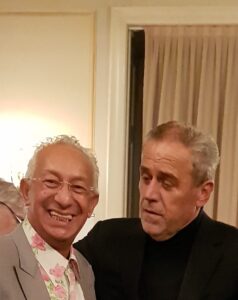
Orhan Galjus with the Mayor of Zagreb
Probably it was not always easy for you to work. Did you receive threats?
Yes … that made me to do more!
You have been also active in activities that are not connected to journalism, but more in fight for human rights of the Roma population in Europe. Can you tell us please a little more about this side of your life?
I have been surprised in my life to see something so important that I didn’t see it in my childhood:
I was refused to be registered as Rome in gymnasium, then I tried as “Serbian”, “Turkish” (my name is pure Turkish) and in the end I declare that I’m Albanian! So, I succeed! Finally I have been registered in my dream school!
From 1990 I have been participating as a member of important associations, NGOs, international organisations. Being in some leading positions, I realized why we Rroma still suffer after Second WW. It was important to talk to various people, to my neighbours, to politicians to build a diplomacy without being diplomat. I do remember my talks to Simon Wiesenthal, to Otto van Habsburg, to USA Ambassadors of Visegrad, to Jacque Delor, to Council of Europe leaders, being on same table with Condy- Condoleezza Rice, then with Sushmaji Swaraj, Hannes Swoboda, long talks with Juan de Dios Ramirez Heredia, Behgjet Pacolli, etc. And this has strengthened my exclusively actions to bring the Rromani “agenda” in the front of the Europeans. Was unbelievable to feel on “my skin”, discrimination, racism, anti-Rromani sentiments so there was no time to think twice. Still Im not satisfied: I must talk back to Commissionaires, Vjera Jurova, Frans Timmermans, we have unfinished talks. And might happen soon.
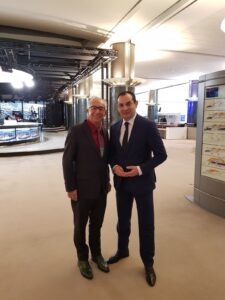
Orhan Galjus with MEP Peter Polak at the European Parliament in Brussels
You worked also for the Open Society office in Budapest. How important was this work for you?
Very important part in my life to learn the mechanism of a donor(s), of philanthropist. Also, to one who is part of such NGO the doors are open.
What was your biggest challenge in your work?
Ethics in journalism, independent financial sources to continue on with development of media.
How you see the situation with Roma media today in Europe?
The situation of the Rromani media is not good! I feel defeated, we didn’t succeed to organize a syndicate. You know what I mean, Roma media are bad organized media organization, and they less media, but more programs at a radio or TV. Having such situation, one would understand why the truth of Rroma doesn’t come to light.
Can EU do more for Roma media?
There has been kind of discussion but never so specifically happened to discus why the media in Rromani languages doesn’t develop, doesn’t succeed in the European media market. Roma media are “forgotten child” of the EU (EC).
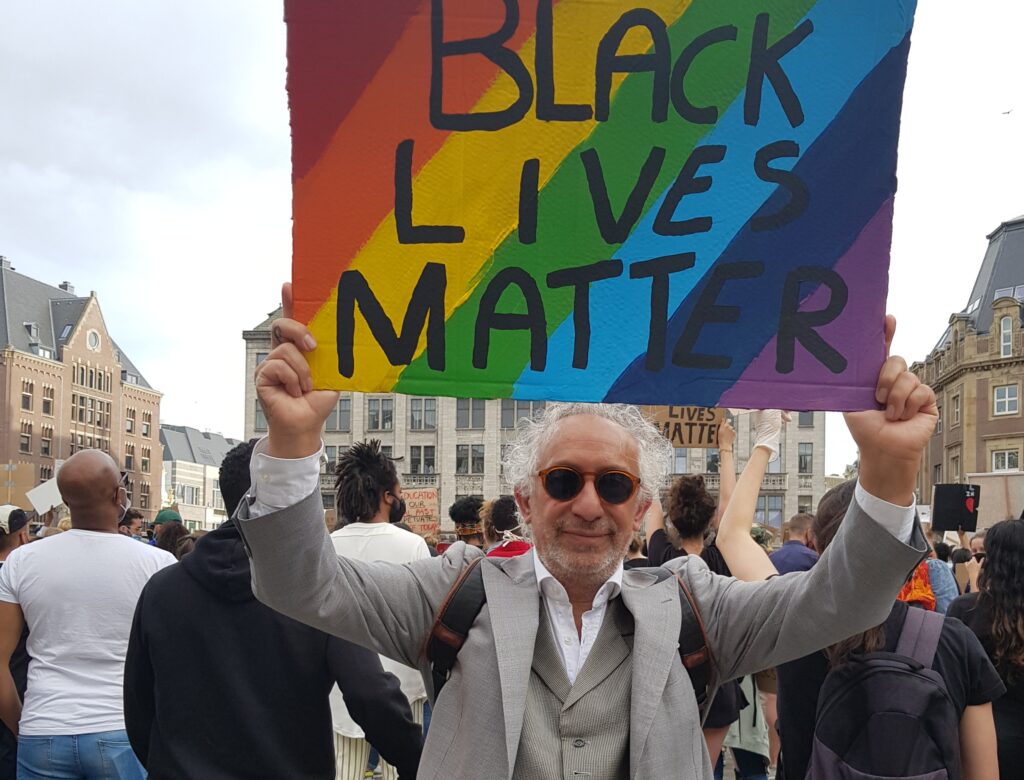
Orhan Galjus
And governments in South East and Central Europe?
Actually, there are successful stories in South East and Central Europe related to governments and I could say still there must happened to bring together those and adapt with development in EU countries.
The job is not simple, unfortunately EU and Central South East Europe should make better bridge. To build such good bridge must happen that the Rroma should have some top leading position to help all those governments who want to facilitate on helping the Rromani people as well as Europe in this field.
How is the situation with Roma media today in the SEEMO region, South East and Central Europe?
Much better that in Western Europe! But we can’t be satisfied with this simplicity. There is need for better organization of the Rromani media in national plan in SEEMO region. Somehow SEEMO has kind of break it s need and role of SEEMO to work on this very important part in the SEEMO region. SEEMO was the first optimistic attempt on shaping the Rromani media, and I ensure you there is real need to work on Rromani media.
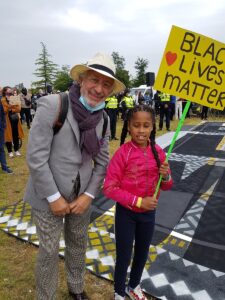
Orhan Galjus
How hard it was to stay always professional as journalists?
We Rroma (journalist) we are not in control of our image. Mainstream media doesn’t quote the Rromani media. They do not believe we Rroma we could be professionals, that is a vicious circle that s why there no cooperation among Rromani media, there no established exchange of the production so many so much of small pro’s and contras. It’s serious issue.
Me personally, I have an “engine” in my head: I don’t like someone to be better, I want and I do to be real and pure, original and those my features in me are as a catalysator to stay professional as journalist. It’s not easy.
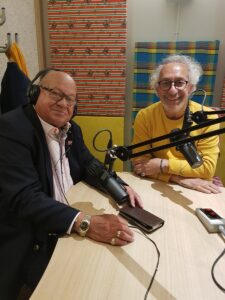
Orhan Galjus in his radio studio (August 2020)
Your work is connected to the South East Europe Media Organisation (SEEMO). You co-organised two SEEMO conferences about Roma media and journalism in South East and Central Europe. How important was this work of SEEMO for you?
It was so important very important! It was historical event in life of the Rroma media. I was so happy and proud to see so many activist who are doing pioneering journalism for community, I was so happy to see so many my colleagues and friends we had important work done from pioneering to serious issues addressing the development situation, struggles, challenges, I would recall to continue cooperation through very good plans made for that the Rromani media can reach their dreams.
Please walk us through a typical workday. How do you manage your time today?
Unavoidable drinking morning coffee with my mother (88) who check the “barometer” of social media, she says: “Dikh so si ani amari mahala” (look what happened in our mahala-street) in same time it is my opportunity to see “reports” from social media.
About noon I’m already consulting or talking, corresponding for the next Radio Patrin broadcasting. To many talks …
Attending only “must meetings”, about 19h at home, and again commentary from my mother: “why you are so late”? In this pandemic period, my mother so happy to see that Im working from home, Im NOT traveling as before …
Finally, as press freedom, human rights and democracy are very important in your life, can you give please some advice for younger journalists?
If you are not curious WHY, your journalistic engine is to slow!
